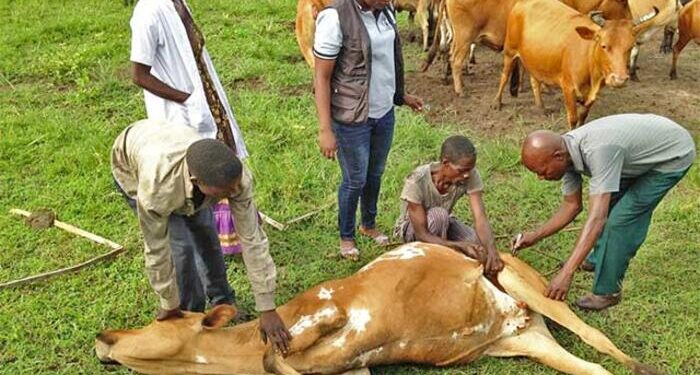The World Health Organization (WHO) has confirmed an anthrax outbreak in the Democratic Republic of Congo (DRC), resulting in one death.
According to the WHO, 16 suspected and one confirmed human cases have been reported in North Kivu Province, located in the eastern part of the country.
Anthrax is a serious bacterial infection caused by Bacillus anthracis, which can affect both animals and humans. It can be transmitted through contact with infected animals or contaminated animal products.
In humans, anthrax can manifest in different forms, including cutaneous, inhalational, and gastrointestinal anthrax, depending on the route of infection.
The outbreak in North Kivu Province is concerning, given the region’s complex humanitarian situation and the potential for further spread.
The WHO is likely working closely with local health authorities to investigate the source of the outbreak, identify additional cases, and implement control measures to prevent further transmission.
The DRC has faced numerous health challenges in recent years, including outbreaks of infectious diseases such as Ebola and cholera.
The anthrax outbreak adds to the public health concerns in the region, highlighting the need for sustained vigilance and robust health systems.
The WHO’s prompt reporting and response to the outbreak are crucial in containing the spread of the disease and mitigating its impact on the affected communities.









